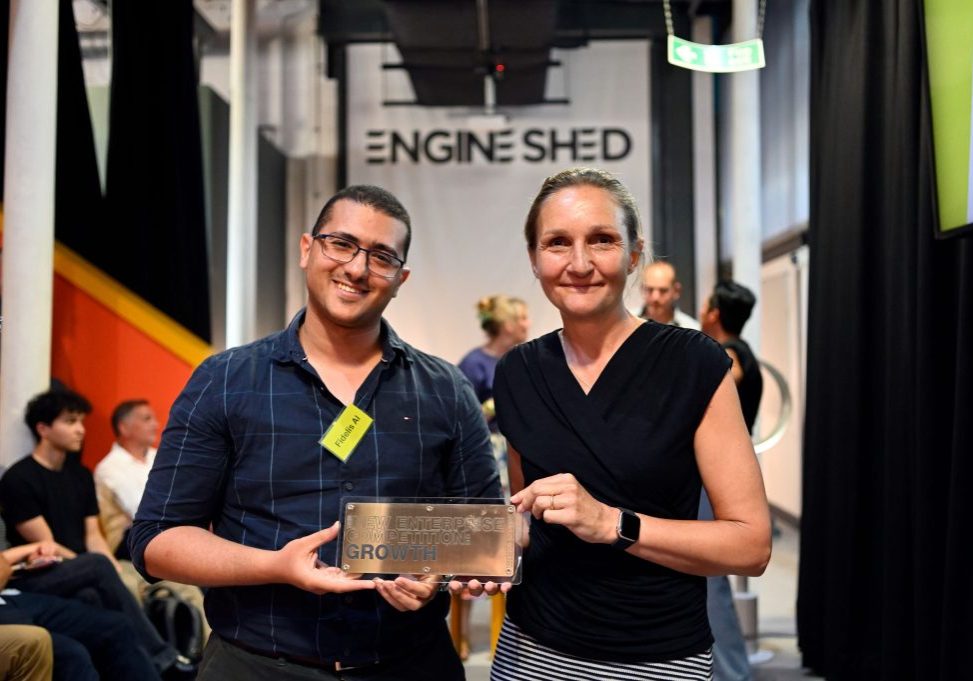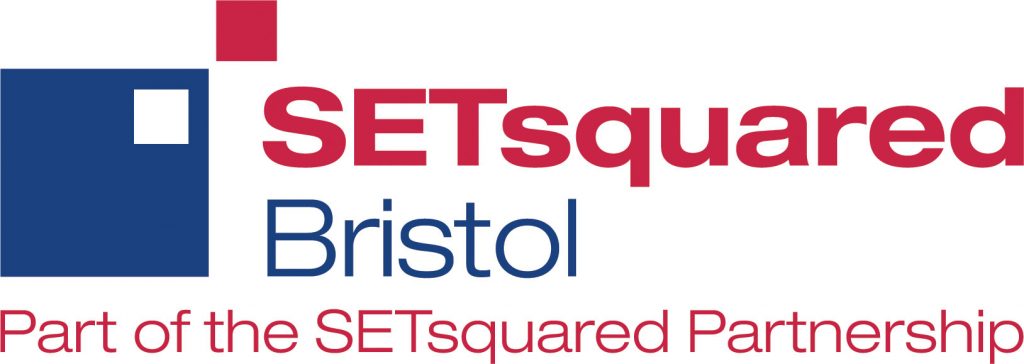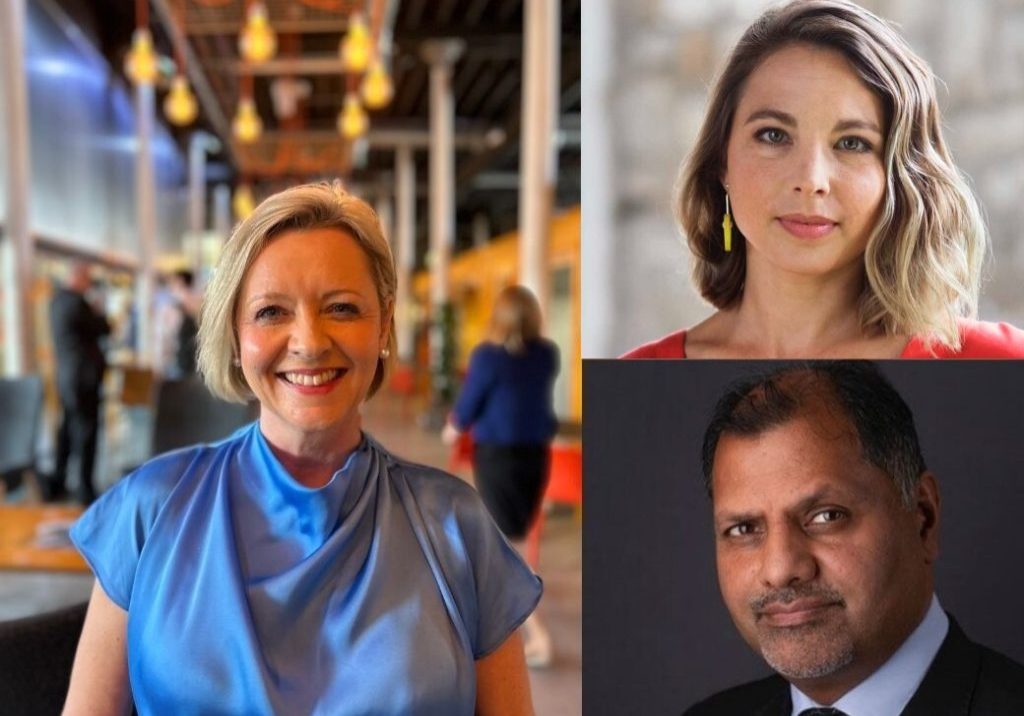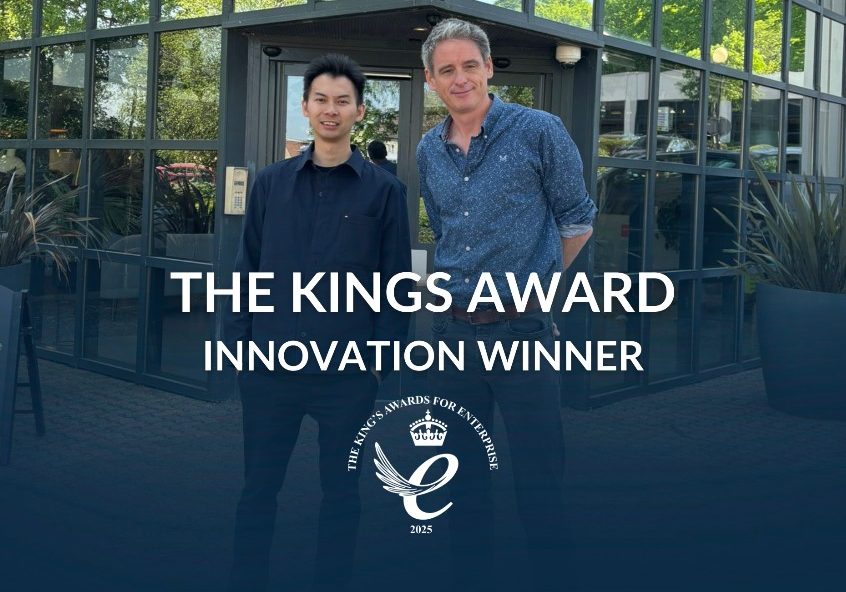The winning wellbeing factor: Psychological safety for competitive edge
Posted by
Jack Jordan-Connelly
This month we feature a guest blog from award-winning business and wellbeing coach, Amy Armstrong, The Executive Alchemist, who has worked with SETsquared Bristol tech founders and their teams since 2016.
 Competitive advantage is something we’re constantly seeking for our teams. Workplace wellbeing isn’t necessarily where we look for it. Yet, we all know that when adrenaline tips over into chronic stress, our brains can start to feel like mush – everything is harder. Conversely, when we’re positively primed, we perform measurably better: research studies have found businesses with a highly engaged workforce are 23% more profitable than those who with the least engaged teams1; positive salespeople sell 37% more than their neutral or negative colleagues2; and project teams with managers who encourage and praise strengths, perform 31% better on average than those with managers who are less positive3.
Competitive advantage is something we’re constantly seeking for our teams. Workplace wellbeing isn’t necessarily where we look for it. Yet, we all know that when adrenaline tips over into chronic stress, our brains can start to feel like mush – everything is harder. Conversely, when we’re positively primed, we perform measurably better: research studies have found businesses with a highly engaged workforce are 23% more profitable than those who with the least engaged teams1; positive salespeople sell 37% more than their neutral or negative colleagues2; and project teams with managers who encourage and praise strengths, perform 31% better on average than those with managers who are less positive3.
Psychological wellbeing certainly wasn’t where Google was looking when it launched Project Aristotle to identify the secret sauce of its highest performing teams. They were expecting to uncover an algorithm of sorts – “take one Rhodes Scholar, two extroverts, one engineer who rocks at AngularJS, and a PhD. Voilà. Dream team assembled, right?” is how Julia Rozovsky at Google People Operations summarised their expectations. Instead, after 200+ interviews and a review of 250 attributes of 180+ active Google teams, they found Psychological Safety at top of the list, and hands down the most important factor for a successful team from any area of the business.
Why is psychological safety key for high performance?
If we think about it, psychological safety makes sense. How likely are you to ask a clarifying question if you risk being criticised for not listening carefully enough? Will you ask for help if you are nervous that you’ll receive an eyeroll or dressing-down? What are the odds that you’ll pipe up with an idea if you might be pointedly ignored, or worse, ridiculed?
Humans are instinctively social animals, regardless of how introverted or extroverted we may be. Our brains are about 200,000 years overdue an upgrade. Back in the day, if we weren’t in a tribe, then we were almost certainly dead. Consequently, failure to meet our social needs whether at home or in the workplace, can trigger serious stress. At the heart of workplace wellbeing is ensuring team members feel safe to take risks without feeling vulnerable.
In my work with founders and executives, I refer to our ‘BASIC needs’. BASIC is a handy acronym that spells what we need most to do our best work: Belonging, Autonomy, Status, Integrity, and Certainty4. It can be a helpful framework to help us reflect on how well each aspect is being met for ourselves or our team members, and to put in a plan to address any weaknesses.
1. Belonging: We feel safest when we have a sense of belonging within a tribe of ‘people like us.’ This is all about connection and trust. The higher the trust within a team, the stronger the collaboration. If we feel understood and supported, then our brains are free to start to think beyond managing the immediate ‘danger’. Suddenly we’re able to problem-solve, be creative, work smarter, and catch the curve balls.
So, what to do? Find rapport. Find common interests. Be genuinely interested in what makes team members tick. Social time together sharing experiences is good. Switch up your meeting styles too to welcome all styles of thinking and input. Help everyone feel they belong and are welcome.
2. Autonomy: Fundamentally we all need to feel we have a level of control. This makes sense –a situation we consider inescapable or uncontrollable can be incredibly stressful, automatically triggering our fight, flight or freeze stress responses. Conversely, “When we’re steering our own ship, we’re more focused, productive, optimistic, resilient, and healthy” as summarised by Steven Kotler in his peak performance primer, ‘The Art of Impossible.’
How can you set boundaries within which individuals can self-direct and make decisions? Or could you give options they can choose from? Flex your management and teamwork skills: delegate when competence and confidence are strong; train, coach and encourage when support with skills and self-belief are needed.
3. Status: Incredibly, threats to status are experienced in the same region of the brain as physical pain. Why? Well, for our ancestors, if they were demoted, they were shoved further away from the fire, got far worse pickings from the hunt, and ultimately, if they were ejected from the safety of the tribe, then their chances of survival were slim. So biologically, we are primed to want affirmation and recognition of our worth. This is why it feels so bad when our points are ignored, or we receive negative feedback. Conversely, receiving public recognition for our good work can give us a massive boost. In fact, the impact of an increase to status feels like receiving a financial windfall.
4. Integrity: Closely associated with the need for status is a belief that we are being treated well. Unfair exchanges generate a strong threat response. Instead, we perform best when decision-making is transparent, and objectives are clear and well communicated. It is important that we feel everyone is pulling their weight, so accountability is key, provided feedback is fair i.e. it is constructive, specific, timely, and focused on behaviour (not personal or judgemental). The need for integrity is very much about individuals and teams ‘walking the talk’ and a sense that our personal, team and company values are aligned.
5. Certainty: The one thing we can rely on is change rather than certainty when we work in technology and innovation, particularly in this current economic climate. Yet our brains crave certainty: the more predictable the future, the fewer emotional and mental resources needed to manage our response. Simple business practices followed consistently can make all the difference regardless of everything else that’s going on: keep your promises; set clear expectations; if you don’t know an answer, give a date for when more information will be given. For meetings, don’t cancel at the last minute; provide appropriate time and information to prepare; and start meetings with confirmation of their objectives, agenda, and end time.
Workplace wellbeing is brain science, but it’s not rocket science. Much of it is common sense and simply treating people well. What can you do to build your and your team’s wellbeing and competitive advantage?
If would like to learn more about how to help your brain play for you rather than against you, register via Eventbrite for my SETsquared Bristol workshop on ‘Pitching with confidence, comfort and enthusiasm’, at Engine Shed, Bristol on 25 May 2023.
1 The Relationship Between Engagement at Work and Organizational Outcomes 2020 Q12® Meta-Analysis: 10th Edition, Gallup https://www.gallup.com/workplace/321725/gallup-q12-meta-analysis-report.aspx
2 Explanatory Style as a Predictor of Productivity and Quitting Among Life Insurance Sales Agents. Journal of Personality and Social Psychology 1986, Vol. 50, No. 4, 832-838 or read Martin Seligman, Learned Optimism: How to Change Your Mind and Your Life (New York: Vintage, 2006)
3 Shawn Achor, Happiness Advantage: The Seven Principles of Positive Psychology That Fuel Success and Performance at Work (New York: Crown Business, 2010), 58.
4To read more about this, see Rock, D. SCARF: a brain-based model for collaborating with and influencing others. NeuroLeadership Journal, Issue 1, 2008.
Recent News, Blogs and Stories



